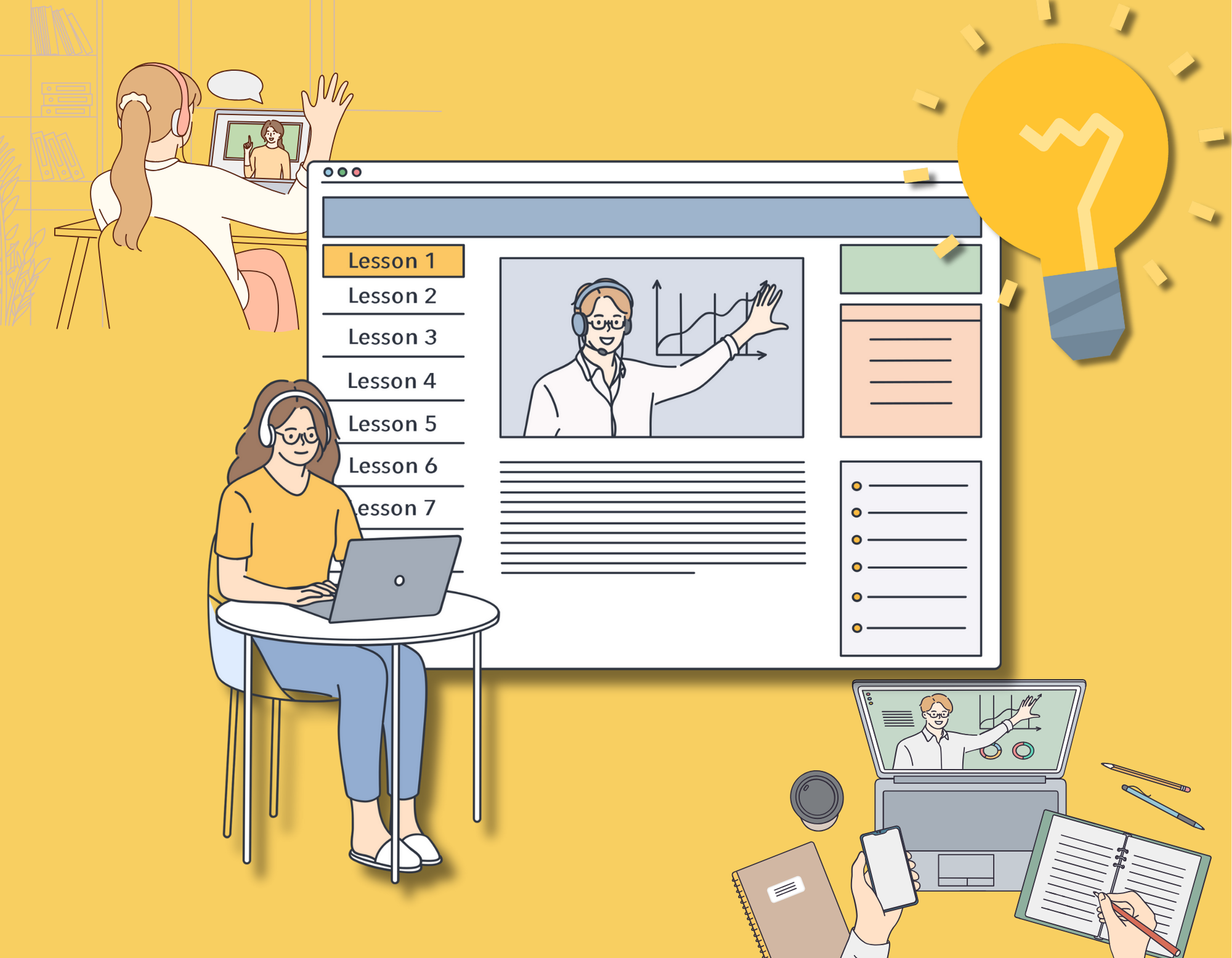The Weingarten Center recognizes that Penn students in all schools and at all levels may be engaged in some form of online learning. In addition to our Study Tools and Strategies, these resources for online learning can assist you as you navigate both synchronous and asynchronous coursework.
The Weingarten Center does not provide tutoring or learning consultations to students in online-only programs, but we hope that, in addition to the support from your course instructors and program staff, these strategies and resources will help you achieve your learning goals.
Disability Services are available to all Penn students, including those enrolled in online-only programs.
Strategize for Online Learning
Our learning specialists have collaborated with the Center for Excellence in Teaching, Learning and Innovation (CETLI) to develop effective strategies in the context of online coursework. Syllabus Analysis for Online Learning [pdf] and Quick Tips for Online Learning [pdf] will be particularly helpful for students who are just getting started with online learning.
Quick Tips for Online Learning
In order to make the best of your online learning experience, consider the strategies below:
- Read your syllabi carefully to understand professors’ expectations, reoccurring deadlines, and meeting times. Add office hours and their meeting links to your calendar.
- Schedule consistent blocks of time for online work to create a routine, even if you’re just watching a video.
- Designate time on your calendar for specific study tasks such as homework, reading, research, and review. Include buffer time in case tasks take longer than expected.
- Work backward from due dates to plan long-term projects and schedule checkpoints for getting feedback on your work.
- Be sure to include time for self-care in your schedule (e.g., exercise, spend time in nature, watch a funny movie, journal, connect with friends).
- Determine what participation looks like in synchronous and asynchronous sessions. Be ready to post comments and participate in breakout rooms.
- If feasible, leave your camera on during synchronous sessions. Instructors appreciate seeing students’ reactions, and you’ll feel more actively engaged.
- Stay active while watching videos by taking notes. Hit pause to solve problems, talk out the material, or draw pictures, diagrams, and graphs.
- Be proactive about forming connections with others in your learning community. Attend virtual office hours, study groups, and tutoring sessions with a few questions in mind.
- Schedule frequent check-ins with your program support staff to discuss study strategies and approaches to online coursework.
- Designate a workspace and let those you live with know what times you need to focus.
- Work on your most difficult tasks during the time of day when you are most productive and able to focus.
- Alternate your subjects
(don’t spend all day on one thing). - Break down assignments into manageable 1-hour tasks.
- Take short screen breaks that have a natural start/end time (e.g., walking the dog, fixing a snack, taking a shower).
- Identify 1 or 2 tasks that you can complete each day without a digital screen to avoid screen fatigue.
- Quiz yourself on what you remember from class by writing, concept mapping, or recording yourself. This will help you discover gaps in your understanding.
- Acquire physical copies of some course materials (check out Books by Mail and Pickup@Penn through Penn Libraries).
- Talk to someone about a recent lecture for 5-10 minutes (audio call if using your phone).
- Take notes and solve problems by hand. Use Adobe Scan or Office Lens to create a digital copy for storage.
Proactive Time Management for Online Learning
In the following module, our learning specialists offer videos and interactive resources to support students in developing proactive time management strategies, specifically for online coursework. Our partners in the Penn Online Learning Initiative were invaluable in supporting the development of this resource. We recommend starting with the self-guided Time Management Self-Assessment.
Time Management Self-Assessment
This self-assessment will help you think more deeply about your habits and what you can do to improve your time management skills, especially as you prepare for online coursework and remote learning.
What is proactive time management?
When it comes to time management, we often assume that scheduling is the extent to which we can manage our time well. But, what if time management is much more than that? How can we tap into the results that time management affords so many people?
Well, we’ve come to understand that time management is a little less about “managing your time” and more about increasing and maintaining your productivity. Time management is actually a holistic skill based on four competencies: Planning, Working Smarter, Self-Regulation, and Flexibility. The synergy of these competencies is what you observe as productivity. This productivity, in turn, empowers you to handle whatever challenges you may encounter.
We’ve selected some of our favorite strategies and tips for each of the four competencies to share with you. Read through our words of wisdom and download our worksheets to think about how you can successfully manage your time and increase your productivity this semester.
Syllabus Analysis
Once you’ve figured out when you will study or complete assignments, you’ll need to think about how to upgrade your work efficiency in those time slots. Your syllabus will help you discover the study activities that translate to success in the course. Establishing working goals and checkpoints for feedback will help you stay on track. Finally, taking breaks will help you maintain your work efficiency over a longer period of time.
Planning & Project Management
Planning is the competency we are most familiar with. This is because we know that we should use syllabi to plan out our schedules for each week throughout the semester. However, we may not capitalize on all of the information that a syllabus provides. We may be aware of our weekly commitments and that consistent study time is ideal, but how can we be realistic about how long routine assignments may take? How can we make optimal use of a visual calendar and its additional features?
Self-Regulation: Prioritize, Optimize, & Revise
Self-Regulation is the competency that generates consistent improvement because you are reflecting on how to optimize your environment and work habits. By evaluating yourself in specific ways, you can address challenges in a more streamlined fashion.
Flexibility
Flexibility is about adjusting quickly to your circumstances and anticipating changes. Instead of reacting to situations without a plan, we hope you will learn to become more flexible in a very proactive sense.
Your Feedback on Proactive Time Management for Online Learning
After you have a chance to engage with these videos and resources, we would appreciate your feedback. Your comments will help us improve this Proactive Time Management for Online Learning module and develop additional modules on other topics.
More Strategies for Online Learning
For more tools and strategies for online learning, check out our most recent Weingarten Center Posts.



